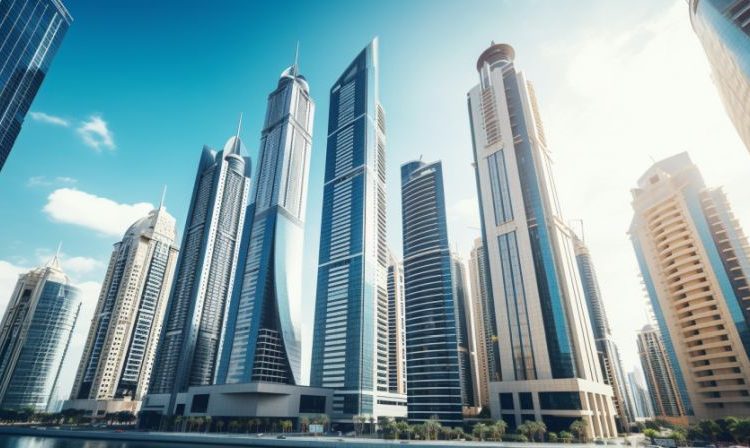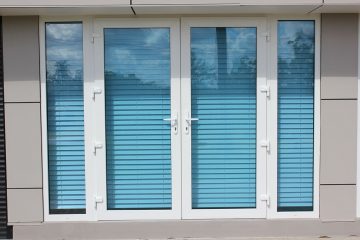Contents
- 1 Important aspects for a successful commercial property lease
- 2 What office space is available and how to apply for employee visas
- 3 What documents will be needed for a successful tenancy
- 4 How to budget for a commercial real estate lease
- 5 Important steps to take after signing a lease agreement
- 6 How to make payments for the lease of commercial real estate
Important aspects for a successful commercial property lease
Before you start your business and office space for rent in dubai, you need to obtain a commercial license, which is issued by the Dubai Economic Department (DED). You can also obtain such a permit from one of the free economic zones such as Dubai Multi Commodities Centre (DMCC) or Dubai Silicon Oasis (DSO). When applying for a trade license, you will learn about the available categories of commercial facilities applicable in Dubai.
It is important to remember that the latest amendments to the UAE Commercial Companies Law (Commercial Companies Law or CCL) in June 2021 have given foreigners the right to undivided ownership of offshore companies registered in the Arab Emirates with over 1,000 commercial and industrial license activities.
What office space is available and how to apply for employee visas
Companies registered in the UAE are able to grant resident visas to their employees. However, the number of foreign employees who will be granted a work visa depends on the type of space leased:
- Flexi desk: Up to three work visas are available for companies using flexi desk. This means that a company can issue work visas for up to three foreign employees.
- Serviced office: In the case of a serviced office, the number of work visas available depends on the size of the office. Usually four or five work visas are available, depending on the size of the office.
- Physical space: For companies renting physical office space, one work visa is available for every 9 square meters of leased space. This means that the larger the leased space, the more work visas can be granted.
Thus, the number of work visas available for foreign employees depends on the type of leased space and its size. When planning to lease commercial real estate in the UAE, companies should consider these restrictions and discuss the availability of work visas with the relevant authorities and management companies.
What documents will be needed for a successful tenancy
In Dubai, there are strict rules for the purpose of commercial real estate. For example, warehouses cannot be used as offices and vice versa. To avoid unnecessary complications, it is recommended to prepare the following package of documents:
- Certificate of business ownership: This document confirms your right to own the business and may be required when leasing commercial real estate.
- Permission to use the selected commercial premises: You will need permission from the relevant authorities to use the selected premises for a specific type of activity. This ensures compliance with the rules and regulations governing the use of the premises.
- Confirmation that the property complies with existing plans: In some cases, you may need to confirm that the property complies with existing town planning plans and permits.
Note! In Dubai, the commercial real estate leasing procedure is governed by the Ejari, a mandatory legal document that confirms the conclusion of the transaction and protects the rights of the parties.
If you plan to make changes to the leased premises, such as installing separate cubicles for employees, it is necessary to specify this possibility in the contract. To avoid future disputes and misunderstandings, key characteristics and facts about your business should be clearly stated in the document. The lease agreement should also include the address of the property, the rental rate, the terms of use of the space and the start date of the agreement.
In addition to the above documents, the landlord may request the following documents:
- A copy of a business plan: This document demonstrates your business strategy and development plans.
- Personal and corporate financial statements: These may be required to assess the financial strength of your company.
- Bank Statement: This document gives an idea of the finances currently available to your company.
- Current credit scores from the three credit bureaus: Information on your company’s credit history may be requested to assess your solvency and reliability.
- References from previous/current landlord (for existing businesses changing legal address): This may be useful to confirm your reputation as a reliable tenant.
- Prior approval from the licensing authority: Depending on the type of activity you plan to carry out, prior approval from the relevant licensing authority may be required.
- Passport of the head of the comp
How to budget for a commercial real estate lease
Budget is one of the most important aspects when leasing commercial real estate. It is important to take into account that in addition to the rental rate agreed in the contract, you will also have to pay a security deposit and other related expenses. When renewing an existing lease agreement, it is advisable to check the current rental rates beforehand using RERA’s rent increase calculator. This will help you assess the possibility of increased costs in the future.
In addition, it is important for prospective tenants to distinguish between the terms “lease” and “rent”. A lease agreement is for one year and automatically renews at the end of that term. A lease, on the other hand, is for a longer term, which can be up to 99 years.
In practice, there are four common types of commercial real estate leases:
- Gross lease: This is the basic type of lease in which the tenant pays a monthly amount agreed upon in advance and the landlord assumes all related costs, including maintenance, insurance and taxes.
- Land lease: In this case, the right to construct a purpose-built commercial building on a plot of land is granted. At the end of the agreement, the landlord gets his plot back along with the property.
- Triple-net lease: This is the least common type of lease as it is quite expensive for tenants but very profitable for landlords. In this case, the tenant pays rent and incurs insurance, taxes, maintenance and other expenses.
- In case of Modified-net lease, this type of lease is most preferred by both landlords and tenants. Costs are shared between both parties based on mutual agreement. This strikes a balance and satisfies the interests of both parties. This approach is often accompanied by a detailed description of each party’s responsibilities and clear terms and conditions to avoid potential disputes in the future.
It is important to remember that the type of commercial real estate lease agreement you choose should be based on your needs, budget and long-term plans for your business. Carefully evaluate all options and discuss the terms of the agreement with the landlord to ensure a mutually beneficial agreement and successful business operations at the leased commercial property.
Important steps to take after signing a lease agreement
Once you have successfully signed a commercial real estate lease, it is important to follow the following steps:
- Connecting electricity and water to DEWA: You need to contact DEWA (Dubai Electricity and Water Authority) to connect electricity and water to your leased premises. This will ensure the smooth running of your business.
- Obtain Property Insurance: It is recommended that you take out insurance that will cover possible damage to the property located in the rented premises. This will help protect your interests and ensure safety in case of unforeseen situations.
- Interior decoration (in case of renting the premises with finishing): If you are renting a space with a clean finish, you will need the services of an interior designer. A standard office of 80 to 350 square meters can take approximately 4 to 7 months to complete. However, if you choose a furnished space, you can start using it immediately, as it is already equipped with the necessary furniture, desks, partitions and other items.
Important: If you need to remodel the premises internally, make sure that this is specified in your lease agreement. You will then need to obtain approval from your landlord, the building management company/developer and the Dubai Municipality/Free Zone Authority. This will ensure that you comply with the requirements and regulations for the redevelopment.
Following these steps after signing the lease agreement will help you organize your commercial space in Dubai smoothly and successfully.
How to make payments for the lease of commercial real estate
In most cases, payments for commercial property rentals in Dubai are made using bank checks. Local landlords prefer to accept checks drawn on the tenant’s personal bank account or on the UAE company account. When signing the rental agreement, the tenant is required to provide the necessary settlement documents covering the entire period of the agreement.
The number of checks to pay the rent is subject to negotiation between the parties. Usually 4-6 payments are made per year. If necessary, the tenant can pay the annual rent in one check. In addition to the rent, the tenant is also required to cover administrative and maintenance costs. He or she may also be required to pay a security deposit, which is usually 5% of the total amount specified in the agreement.
It is important to note that in July 2022, the DLD (Department of Land and Property in Dubai) entered into an agreement with Emirates NBD that allows rent payments to be deducted directly from the tenant’s account. This simplifies the payment process and increases convenience for tenants by providing them with a more flexible and efficient rent payment system.






